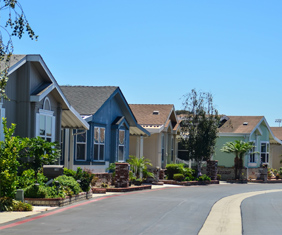Retirement Village Agreements and Land Lease Communities
The decision to move into a retirement village or a land lease community is a lifestyle choice and an important financial decision. Whilst there are lifestyle and social similarities in both, there are differences in the type of agreements and the fees applicable.
Retirement Village Agreements
Retirement Villages are mainly occupied by residents over the age of 55 years who have retired from full time employment. Accommodation in a retirement village can be in rooms, apartments, units or a home.
Retirement villages may offer self-contained options for residents to live independently, assisted living options including meals and cleaning services or a mixture of both options.
Each village will offer a variety of services and facilities. For most residents, the benefits of being in a private and secure environment with a home that is easily maintained is an important.
Each village will offer a variety of services and facilities.

Land Lease Communities
In a land lease community, also known as an over 50 or 55’s community, you own the home but lease the land where the home is situated. Residents pay site fees (rent) to the community operator for the right to occupy the site.
Whilst not a retirement village, there may be a rule that residents reach a certain age to live in the community. The community and facilities are designed specifically for those who are still able to live an independent life in their own home.
A land lease community may only permit permanent home owners to reside, where other communities may have a mixture of tenants and long-term and short-term casual occupants.



When you have decided to proceed with a purchase in a retirement village or land lease community, we strongly recommend that you seek advice on the documents before committing to your purchase.
Hive Conveyancing can provide you with legal advice on the contract and agreements, the fees and conditions that you need to be aware of. We will also ensure you understand your rights and obligations as a resident in the village or community before proceeding.
